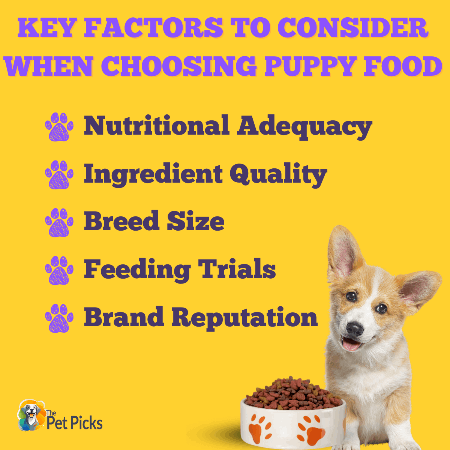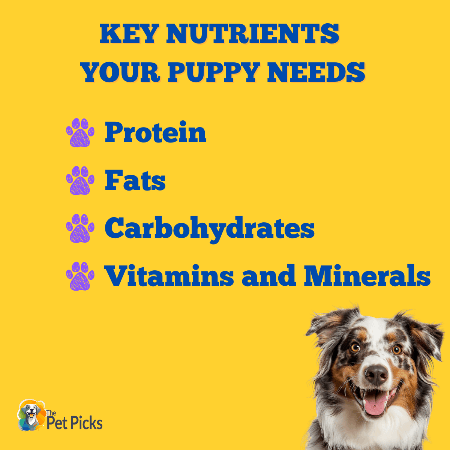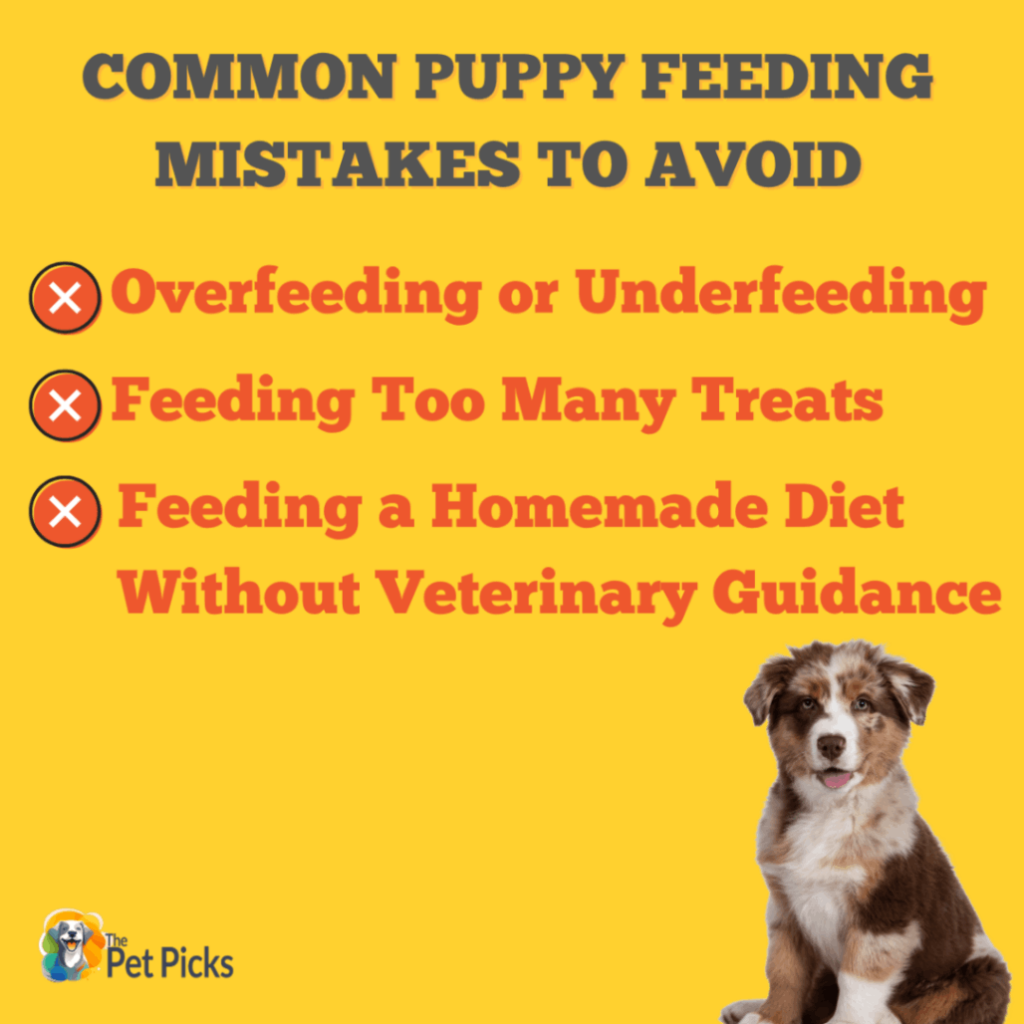The Importance of Choosing the Right Puppy Food
Welcoming a puppy into your home is a joyous occasion filled with new adventures and responsibilities. One of the most crucial tasks is ensuring your puppy gets the right nutrition to support their growth and health. This guide will help you navigate the world of puppy food, highlighting key factors to consider and insights from leading pet care brands like Embark Vet, Wisdom Panel, Orivet, 5Strands, and DNA My Dog.
Why Puppy Food?
Puppies have different nutritional needs compared to adult dogs, making it essential to feed them specially formulated puppy food. These foods are designed to support your pup's growth and provide essential nutrients such as protein, fat, carbohydrates, calcium, phosphorus, copper, and specific amino acids like arginine, phenylalanine, and tyrosine. A good puppy food should also be highly digestible to reduce any gastrointestinal discomfort or upset.
Choosing the Right Puppy Food: Factors to Consider
When choosing the best puppy food for your new family member, consider the following factors:
1. Expected Adult Size
If your puppy is expected to weigh over 50 pounds as an adult, consider using a puppy food formulated especially for large- or giant-breed dogs. Brands like Embark Vet and Wisdom Panel offer specially formulated foods for larger breeds. These foods provide fewer calories and less calcium, helping regulate your puppy's skeletal and muscle growth and preventing rapid growth that could lead to skeletal abnormalities.
2. Breed-Specific Needs
While not necessary, breed-specific puppy foods can offer added nutritional benefits. For instance, breeds with longer coats may benefit from a diet with added fat and greater essential fatty acids, supporting healthier haircoat and skin. Brands like Orivet offer breed-specific tests that can help you understand your dog's unique genetic makeup and nutritional needs.
3. Ingredient Profile
Ensure the puppy food you choose is made by a reputable company and contains high-quality ingredients. Avoid grain-free diets for puppies due to their connection to the development of dilated cardiomyopathy (DCM). Instead, opt for foods that contain grains and other nutrient-rich ingredients. Brands like 5Strands offer affordable allergy and intolerance tests for dogs, helping you identify any potential food sensitivities your puppy may have.
4. Quality and Reputation of the Brand
Choose a brand that is committed to conducting scientific research on the foods it produces via organized feeding trials. Brands like DNA My Dog, which provides comprehensive DNA testing for dogs, can offer valuable insights into your puppy's breed and health, informing your choice of puppy food.
Understand how nutritional needs vary among different dog breeds with our article Nutritional Needs: How They Differ Among Dog Breeds.
The Importance of Balanced Nutrition for Puppies
Puppies grow at an astonishing rate, and their diet plays a pivotal role in this growth. A balanced diet provides the energy your puppy needs to explore their world, supports their immune system, and contributes to the development of healthy bones, muscles, and organs.
When choosing a puppy food, it's essential to look for one that is specifically formulated for puppies. These foods are designed to meet the nutritional needs of growing dogs, with higher levels of protein, fats, and certain vitamins and minerals compared to adult dog food.
Key Factors to Consider When Choosing Puppy Food
1. Nutritional Adequacy
The Association of American Feed Control Officials (AAFCO) provides guidelines for pet food, including nutritional profiles for different life stages. Look for foods labeled as “complete and balanced” for “growth and reproduction” or “all life stages.” This means the food meets the minimum nutritional requirements for puppies.
2. Ingredient Quality
High-quality ingredients are more digestible and provide more usable nutrients for your puppy. Look for foods with real meat (like chicken, beef, or fish) as the first ingredient, rather than meat by-products or fillers like corn and wheat.
3. Breed Size
Puppies of different breed sizes have different nutritional needs. Large breed puppies, for example, can benefit from specific nutrient ratios to support healthy bone development and prevent joint issues later in life.
4. Feeding Trials
Feeding trials are the gold standard for determining the nutritional adequacy of pet food. They involve feeding the food to dogs under controlled conditions and monitoring their health. Look for foods that have undergone AAFCO feeding trials.
5. Brand Reputation
Choose a brand with a good reputation for quality and safety. Brands like Embark, Wisdom Panel, Orivet, 5Strands, and DNA My Dog, which we at ThePetPicks.com have thoroughly reviewed, are known for their commitment to quality and transparency.

The Role of DNA Testing in Puppy Nutrition
Understanding your puppy's breed can provide valuable insights into their nutritional needs. Different breeds have different predispositions to certain health conditions, and your puppy's diet can play a role in managing these risks.
DNA testing kits, like those offered by Embark, Wisdom Panel, Orivet, 5Strands, and DNA My Dog, can reveal your puppy's breed mix, as well as potential health risks. This information can help you and your vet tailor your puppy's diet to their specific needs.
For example, some breeds are prone to obesity, and knowing this can guide your decisions about portion sizes and calorie content. Other breeds may be at risk for conditions like hip dysplasia, and a diet that supports joint health could be beneficial.
Get a comprehensive overview of the raw food diet for dogs in our article Raw Food Diet for Dogs: Weighing the Pros and Cons.
Decoding Puppy Nutrition: Key Nutrients and Understanding Pet Food Labels
Feeding your puppy isn't as simple as just filling their bowl with food. Understanding the key nutrients your puppy needs and how to read pet food labels can help you make the best choices for your furry friend's health and wellbeing.
Key Nutrients Your Puppy Needs
Puppies require a range of nutrients for their growth and development. Here are some of the most important ones:
1. Protein
Protein is crucial for your puppy's growth, providing the building blocks for their muscles, skin, coat, organs, and other tissues. It also plays a role in creating antibodies that help fight off infections. Look for high-quality sources of protein, such as real meat, in your puppy's food.
2. Fats
Fats provide the most concentrated source of energy for your puppy. They also help with the absorption of certain vitamins and contribute to a healthy skin and coat. Essential fatty acids, like omega-3 and omega-6, are particularly important for your puppy's brain and eye development.
3. Carbohydrates
While dogs don't technically need carbohydrates, they can be a good source of quick energy and dietary fiber. Good sources of carbohydrates include whole grains like brown rice and oats.
4. Vitamins and Minerals
Vitamins and minerals play a variety of roles in your puppy's body, from bone development to immune function. Calcium and phosphorus, for example, are important for bone growth, while vitamins A and E support vision and immune health, respectively.

Understanding Pet Food Labels
Pet food labels can be confusing, but they contain important information about the nutritional value of the food. Here's what to look for:
1. Ingredient List
Ingredients are listed in order of weight, with the heaviest ingredients listed first. Look for a high-quality source of protein (like chicken, beef, or fish) as the first ingredient.
2. Guaranteed Analysis
This section provides the minimum or maximum amounts of certain nutrients in the food, such as protein, fat, fiber, and moisture. Keep in mind that these are not exact amounts, but ranges.
3. Nutritional Adequacy Statement
This statement indicates whether the food is complete and balanced for a certain life stage (like growth) or for all life stages. Look for foods that are labeled as complete and balanced for growth or all life stages.
4. Feeding Guidelines
These guidelines provide a starting point for how much to feed your puppy based on their weight. Remember, these are just guidelines, and your puppy's needs may be different depending on their activity level, metabolism, and other factors.
Discover the dangers of chocolate for dogs in our article Unmasking the Hazards of Chocolate for Our Canine Companions.
Transitioning Your Puppy to Adult Dog Food: A Step-by-Step Guide
As your puppy grows and matures, their nutritional needs change. Transitioning them to adult dog food is an important step in ensuring they continue to get the nutrients they need. Here's how to do it smoothly and safely.
When to Switch to Adult Dog Food
The right time to switch to adult dog food varies depending on your dog's breed and size. Small breed dogs can usually make the switch between 9 to 12 months of age, while larger breeds may need to stay on puppy food until they are 12 to 24 months old. Your vet can provide personalized advice based on your puppy's breed, size, and health.
How to Transition to Adult Dog Food
When it's time to make the switch, do it gradually over a period of about one week. This can help prevent digestive upset and make the transition easier for your puppy.
- Day 1 and 2: Feed your puppy 75% puppy food and 25% adult dog food.
- Day 3 and 4: Feed your puppy a 50/50 mix of puppy and adult dog food.
- Day 5 and 6: Feed your puppy 25% puppy food and 75% adult dog food.
- Day 7: Your puppy is now ready to eat 100% adult dog food.
Remember to monitor your puppy during the transition. If they show signs of digestive upset, such as vomiting or diarrhea, slow down the transition or consult your vet.
Common Puppy Feeding Mistakes to Avoid
Feeding your puppy isn't always straightforward, and it's easy to make mistakes. Here are some common ones to avoid:
- Overfeeding or Underfeeding: Both can lead to health problems. Follow the feeding guidelines on your puppy's food, and adjust as needed based on your puppy's activity level and body condition.
- Feeding Too Many Treats: Treats should make up no more than 10% of your puppy's daily calories. Too many can lead to weight gain and nutritional imbalances.
- Feeding a Homemade Diet Without Veterinary Guidance: Homemade diets can be nutritionally unbalanced if not properly formulated. Always consult your vet before feeding a homemade diet.

Dealing with Picky Eaters
Some puppies can be picky eaters. If your puppy is refusing to eat, try these tips:
- Stick to a Feeding Schedule: Puppies thrive on routine. Feed your puppy at the same times each day, and take away any uneaten food after about 20 minutes.
- Avoid Table Scraps: Feeding your puppy from the table can encourage picky eating. Stick to their puppy food, and save treats for training.
- Try a Different Food: If your puppy consistently refuses to eat their food, they may not like the taste or texture. Consider trying a different brand or formula.
Frequently Asked Questions About Puppy Nutrition
As a pet parent, you likely have many questions about feeding your puppy. Here are answers to some of the most common questions we hear at ThePetPicks.com.
Can I Feed My Puppy Adult Dog Food?
Puppies have different nutritional needs than adult dogs and require more protein, fat, and certain vitamins and minerals. Feeding your puppy adult dog food can lead to nutritional deficiencies and hinder their growth and development. Always choose a food specifically formulated for puppies until your vet recommends switching to adult food.
How Often Should I Feed My Puppy?
Puppies need to eat several small meals a day to provide the nutrients they need for growth and to prevent their small stomachs from getting overloaded. Here's a general guideline:
- Up to 4 months old: 4 meals per day
- 4 to 6 months old: 3 meals per day
- 6 months and older: 2 meals per day
Can I Feed My Puppy a Raw or Grain-Free Diet?
Raw and grain-free diets have become popular in recent years, but they're not always the best choice for puppies. Raw diets can pose a risk of bacterial contamination, and grain-free diets have been linked to a heart condition called dilated cardiomyopathy (DCM) in dogs. Always consult your vet before feeding your puppy a raw or grain-free diet.
What Should I Do If My Puppy Won't Eat?
If your puppy refuses to eat, it could be a sign of illness, especially if they're also showing other signs of being unwell, like lethargy or vomiting. If your puppy won't eat, consult your vet. If your puppy is healthy but a picky eater, try the tips we discussed earlier in this guide.
How Can I Tell If My Puppy Is Overweight or Underweight?
Your vet is the best person to determine if your puppy is at a healthy weight. However, you can also do a visual check: you should be able to feel your puppy's ribs but not see them, and they should have a visible waist when viewed from above. If you're concerned about your puppy's weight, consult your vet.
Remember, feeding your puppy is one of the most important tasks you have as a pet parent. At ThePetPicks.com, we're here to help you make the best choices for your furry friend's health and wellbeing.
Nourishing Your Puppy's Growth and Development
Choosing the right food for your puppy is a significant decision that can impact their growth, development, and long-term health. By understanding your puppy's nutritional needs, learning how to read pet food labels, avoiding common feeding mistakes, and knowing when and how to transition your puppy to adult dog food, you can ensure your puppy gets the best start in life.
Remember, every puppy is unique, and their nutritional needs can vary based on factors like their breed, size, activity level, and health status. Always consult your vet if you have any concerns about your puppy's diet or health.
At ThePetPicks.com, we're committed to helping you make the best choices for your beloved canine companions. We leverage our deep love for dogs to scrutinize every product and service for your pet, ensuring that you can trust our comparisons as much as your furry friend trusts you. Because they're family.
This guide is intended to provide general information about puppy nutrition. It is not intended to serve as medical advice or to replace consultation with a qualified veterinarian or other pet health professional. Always consult your vet if you have any concerns about your puppy's diet or health.

